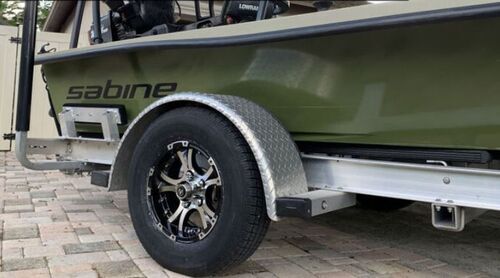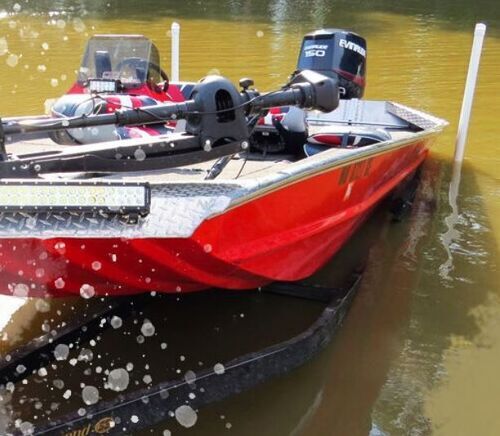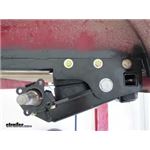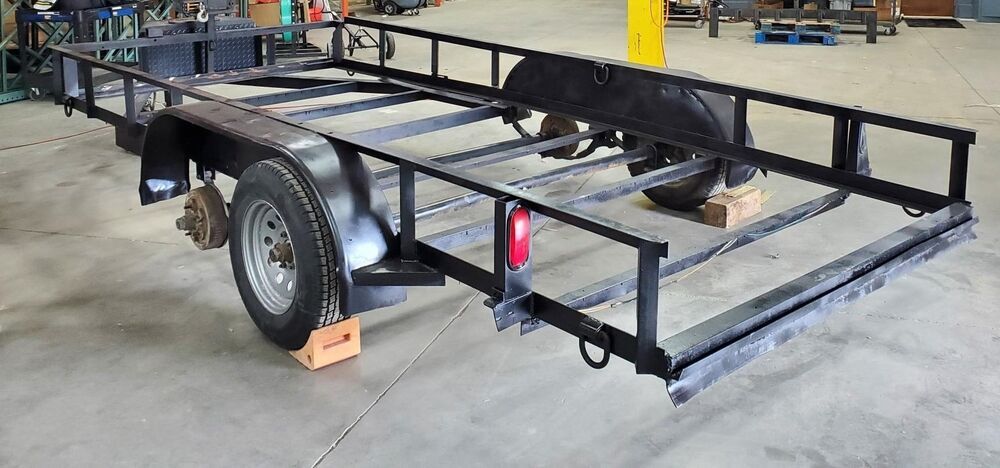
Galvanized vs. Aluminum Trailers
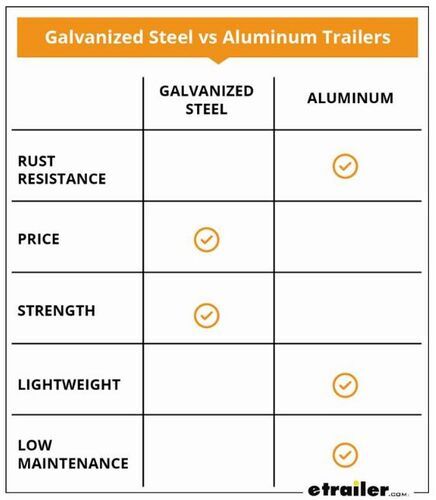
- Steel is a strong, durable material that will bear heavy loads, resist dings and dents, and perform well on rough terrain. With regular servicing, a galvanized trailer will haul year-after-year, without much complaining.
- Galvanization also makes steel safe to use in wet conditions -even in saltwater- so long as it’s cleaned and stored in a dry place afterwards. The key to preventing rust here is regular cleaning and maintenance.
- If a galvanized coating is well-maintained and the sacrificial layer isn’t broken (which can happen if corrosion eats away at the zinc, or if the outer layer is scratched) well-maintained galvanized steel can last a long time, we’re talking 15 years or more. There are extra steps you can take to protect and prolong the life of your galvanized trailer, but we’ll get to that later.
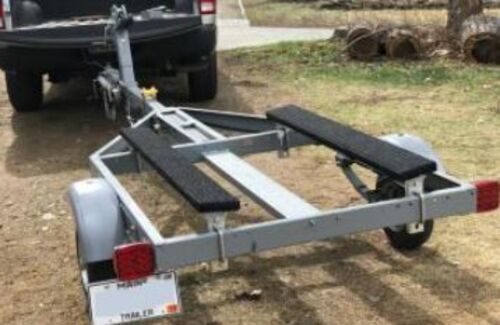
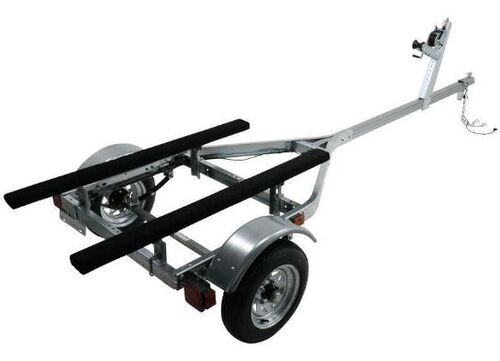
- Powder coating is a versatile option for customizing your galvanized trailer, and as an added benefit it offers enhanced protection against rust. When you put a powder coating on top of galvanized steel (referred to as a duplex system), it takes much longer for corrosion to damage the underlying metal.
- While you can use paint on galvanized steel, it’s a fairly complicated process that requires specialized products and surface prep. The end result is ultimately less durable and protective than powder coating, for nearly the same price.
- Steel’s rigidity can also cause issues down the road. While steel’s strength makes it more resistant to damage overall, when dings and dents do eventually occur, the rigid nature of this material can make it harder to repair. Additionally, rigid metal can become brittle and crack over time.
- Hauling a heavier trailer will decrease fuel efficiency and environmental sustainability. So with a galvanized trailer, you’ll spend more on fuel, and increase your carbon footprint.
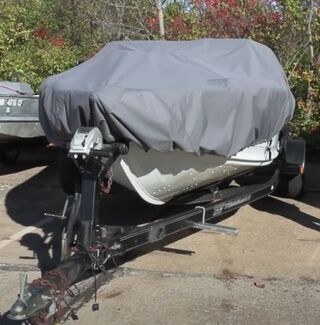
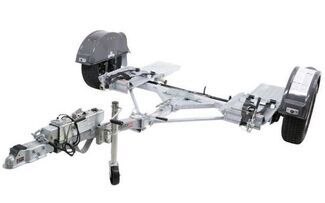
- Even though a galvanized finish is durable, if the outer layer is compromised, rust can quickly develop. This typically happens around weld points, rivets, and screws. Any break in the surface layer of your trailer can become a hot-spot for rust.
- If you find damage to a galvanized trailer’s zinc coating, it will need to be dealt with ASAP. Rust should be wire brushed/sanded off, and then the affected area should be re-coated with a zinc-rich paint or sealer to prevent further corrosion.
- A light yet sturdy trailer would be great for someone with a lower GVWR, who isn’t able to tow massive loads, but still wants the ability to haul. Aluminum trailers can give you the cargo space you want, without the extra bulk you don't. However, the benefits of a lightweight trailer aren’t exclusive to light-duty vehicles.
- An aluminum trailer can be a fantastic option for someone with a stronger tow vehicle, who wants to maximize their cargo capacity. (A vehicle can only carry a certain amount of total weight, that’s your GCWR. When your trailer is lighter, that takes up less of your GCWR, and leaves more wiggle room to tow additional cargo).
- Having less weight in the back can make it safer to tow. When your trailer is lighter, it has an easier time braking and maneuvering on the road.
- A lighter trailer also means that you’ll have better gas mileage, making aluminum trailers an environmentally conscious and cost effective option.
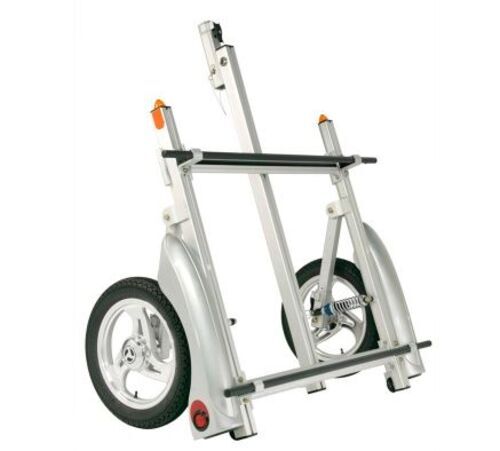
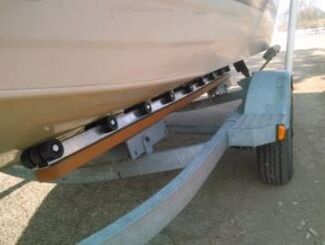
- While a galvanized trailer is only protected by a zinc coating (which can still fail over time), aluminum is naturally rust-resistant all the way through.
- An aluminum trailer will perform just as highly in wet conditions (including saltwater, so long as it’s thoroughly cleaned afterwards), and you’ll never have to worry about scouring your trailer’s body for highly-damaging rust. *It is worth noting that some superficial corrosion (different than rust) can occur on aluminum in very specific circumstances, but we’ll dig into that later.*
- Superior flexibility means that aluminum can easily spring back into shape if it’s bent or twisted. Because of this, a trained professional shouldn't have too much trouble knocking out general repairs (if the trailer doesn’t flex back to its original shape on its own).
- Many aluminum trailer-owners swear that aluminum gives a smoother, more even ride than steel trailers (on and off the road).
- With regular upkeep, an aluminum trailer will hold up to heavy use and be road-worthy for years to come.
- If you start to feel like the shine on your trailer is getting dimmer, a periodic acid bath will return it to a factory-fresh finish.
- For those who are keen on customization, automotive grade urethane paint is a great option to give your aluminum trailer a personal touch.
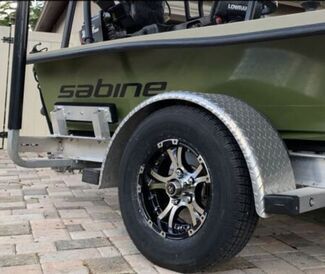
- If you’re curious about how to best plan out your trailer maintenance schedule, check out our handy checklist here!
- (It's worth mentioning, a galvanized trailer will also hold it's value for a very long time if it's well taken care of. But generally speaking, aluminum seems to have a slight edge in this department)
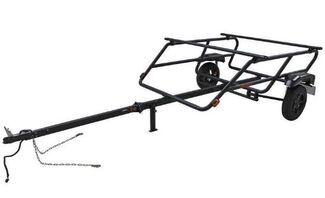
- It takes less force to damage an aluminum trailer than it would a steel trailer. As a result, an aluminum trailer will be more likely to collect dings and scratches under regular use.
- Aluminum can also crack after being subjected to repeated stress. Minor cracks can sometimes be repaired, but the best defense against cracking is regular trailer maintenance. Once a major crack has formed, your trailer will probably need to be replaced before too long. It’s worth mentioning that it t takes a while to put this much wear on an aluminum trailer (sources say 15+ years, and that’s with heavy loads and frequent use)
- Aluminum trailers that see a lot of saltwater can experience galvanic corrosion. This type of corrosion can also happen when aluminum comes into contact with more noble metals (metals that are less reactive than aluminum), such as copper/copper alloys, zinc, certain types of steel, etc.
- Aluminum can also experience pitting corrosion, crevassing corrosion, and general corrosion from over-exposure to highly acidic solutions.
- Some types of aluminum corrosion can be removed, but the best way to protect your aluminum trailer from corrosion is regular, thorough cleaning. There are also a number of protective coatings you can apply to an aluminum trailer to make it more corrosion-resistant.
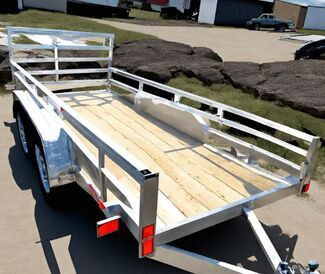
Departments
Towing
- Trailer Hitch
- Fifth Wheel
- Gooseneck
- Towing a Vehicle
- Front Hitch
- RV Hitch
- ATV Hitch
- HD Truck Hitch
- Vehicle Wiring
- Brake Controller
- Ball Mounts
- Weight Distribution
Sports and Recreation
Trailer Parts
- Utility Trailer
- Boat Trailer
- Landscape Trailer
- Enclosed Trailer
- 5th/Camper Trailer
- Car Hauler
- Horse Trailer
Vehicle
Contact & Help

What our customers are saying:
"In these days of customer "no service" I am usually disapointed when doing business with people I don't know. It was refreshing doing business with you. I'm impressed!"
Randy
Watkinsville, GA
Popular Vehicles
- Subaru Forester
- Ford F-350 Super Duty
- Ford F-250 Super Duty
- Chevrolet Silverado 1500
- Jeep Wrangler Unlimited
- Jeep Wrangler
- Ram 3500
- Toyota Highlander
- Ram 2500
- Chevrolet Silverado 2500
- Subaru Outback Wagon
- Chevrolet Silverado
- Dodge Ram Pickup
- GMC Sierra 2500
- Ram 1500
- Ford F-250 and F-350 Super Duty
- Jeep Grand Cherokee
- Toyota Tacoma
- GMC Sierra 3500
- Toyota Tundra
- Ford Escape
- More >>


